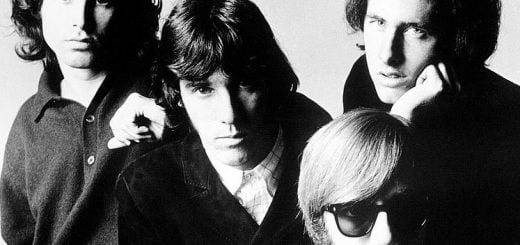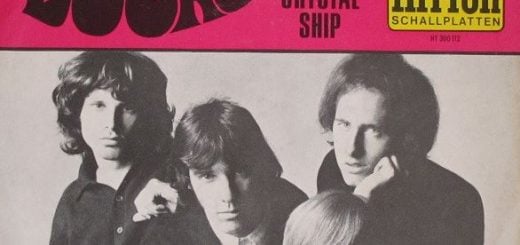Wild Child by The Doors Lyrics Meaning – Unraveling Jim Morrison’s Lyrical Labyrinth
Lyrics
Wild child full of grace
Savior of the human race
Your cool face
Natural child, terrible child
Not your mother’s or your father’s child
Your our child, screamin’ wild
An ancient rulage of grains
And the trees of the night
Ha, ha, ha, ha
With hunger at her heels
Freedom in her eyes
She dances on her knees
Pirate prince at her side
Stirrin’ into a hollow idols eyes
Wild child full of grace
Savior of the human race
Your cool face
Your cool face
Your cool face
Do you remember when we were in Africa
The Doors’ ‘Wild Child,’ a track from their 1969 album ‘The Soft Parade,’ echoes with the electric folklore of the late 60s counterculture. The enigmatic lyrics penned by the band’s iconic frontman, Jim Morrison, evoke a spirit of rebellion and the quest for freedom that defined an era. This poetic anthem materializes as a mosaic of vivid imagery and compelling symbolism that has intrigued listeners for decades.
Dissecting the essence of ‘Wild Child,’ we delve into the heart of its meaning, peeling back the many layers of Morrison’s carefully crafted language. The song stands as a testament to a bohemian philosophy, the beat poets’ influence on Morrison, and the overarching themes of liberty and self-discovery that pulse through The Doors’ music.
The Enigmatic Savior of the Human Race
Morrison introduces the subject as a ‘Wild child full of grace, savior of the human race,’ instantly shrouding the figure in a mystical cloak. By declaring the ‘Wild Child’ as a savior, Morrison suggests a messianic figure, an archetype that can lead the listener out of societal confines. Not just any savior, but one ‘full of grace,’ which insinuates a purity, a natural and unspoiled essence that is all too rare.
The interplay of divinity and earthly desires in these lines speaks to the duality of human nature. Morrison challenges the status quo, preemptively crowning the youth, the outliers, the non-conformists as the true redeemers of a generation grappling with the existential weights of war, social injustice, and cultural rigidity.
A Transcendental Descent Through Ancestral Memory
Reference to an ‘ancient rulage of grains’ and ‘the trees of the night’ evokes images of primal, forgotten connections to the earth and its old, mystic ways. Morrison’s invocation of primordial forces within the lyrics demonstrates a longing for a return to a more fundamental state of being, unburdened by modern complexities.
Such lines embed a hidden meaning in ‘Wild Child,’ delving deep into the collective unconscious. Morrison’s lyrical journey seems to traverse through ancestral memory, hinting at the interconnectedness of past and present, of the inherent wildness within mankind and the natural world that society obscures and tames.
Rebellion Embodied: Freedom in Her Eyes
The vivid imagery of a girl ‘With hunger at her heels / Freedom in her eyes’ portrays an untamed spirit, eternally seeking, never fully satisfied. This hunger represents an insatiable desire for autonomy, a refusal to be fettered by expectations or traditions.
The ‘Pirate prince at her side’ further emphasizes this theme of rebellion. Pirates, symbols of lawlessness and adventure, connote a life led entirely on one’s own terms. Thus, Morrison crafts an environment where the ‘Wild Child’ can embody the ultimate expression of personal freedom, feared by ‘hollow idols’ and societal norms.
Not of Any One Lineage: The Collective Child
Morrison’s ‘Wild Child’ is ‘not your mother’s or your father’s child,’ signifying that this spirit belongs to no single entity, but to all—transcending traditional familial ties and inheritance. This child is an amalgamation of the collective wish for truth and purity.
‘Your our child, screamin’ wild,’ the lyrics say, conveying a shared ownership of this untethered spirit. Here, Morrison invites us to claim the ‘Wild Child’ as a part of ourselves, urging us to acknowledge the raw, primitive scream within each of us that yearns for liberation and self-expression.
Recalling the Cradle of Civilization: A Return to Africa
The closing question, ‘Do you remember when we were in Africa?’ strikes a nostalgic and unifying chord, alluding to the shared origin of humanity. Morrison’s lyrical prowess transports the listener to a time and place reminiscent of beginnings, of unity, and of an inherent connection with the wild and untamed.
There’s an implication here of a collective memory and experience, a universal remembrance that connects us all. Morrison leaves listeners pondering their roots, the ferocity of their own untamed spirits, and the pull towards an unadulterated existence, symbolized by the cradle of civilization.








